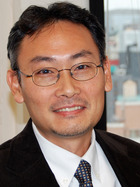Q. I underwent a modified radical neck dissection. I lost feeling on the left side of my neck, head, tongue and shoulder. I have no sense of taste and have difficulty swallowing. Will the feeling and sense of taste return?
There are a number of changes after treatment similar to what you’ve described, some of which can be permanent. Rehabilitation, however, can ease the side effects of treatment, and there are ways to cope with these effects over the long term.
Given the complexities of treating head and neck cancer, a team approach which utilizes a variety of different specialists is essential to minimizing the complications and maximizing the chances for recovery. In addition to the treating physicians—an oral or ear, nose and throat surgeon, a medical and/or radiation oncologist, a plastic surgeon, prosthodontist, and a dentist among them—a number of other health care professionals can assist with your recovery. These other team members include dietitians, social workers, nurses, physical therapists, and speech-language therapists.
Check with your surgeon regarding the loss of feeling on the side of neck. While nerves may have been cut in the area during the node dissection, you should not rule out at least some sensation returning over time. Have your taste and swallowing problems evaluated using tests such as the modified barium swallow (a kind of x-ray) or fiberoptic endoscopy. A speech-language pathologist can provide advice and guide you with therapeutic exercises to improve swallowing ability. There are also medications (both prescription and over the counter) that can help with saliva problems and dietary changes (such as avoiding foods that are made up of small particles) to ensure you continue to obtain sufficient nutrition.
Consider joining a peer support group at your local medical center or through organizations such as Support for People with Oral and Head and Neck Cancer (SPOHNC) or CancerCare.

 Answered by
Answered by